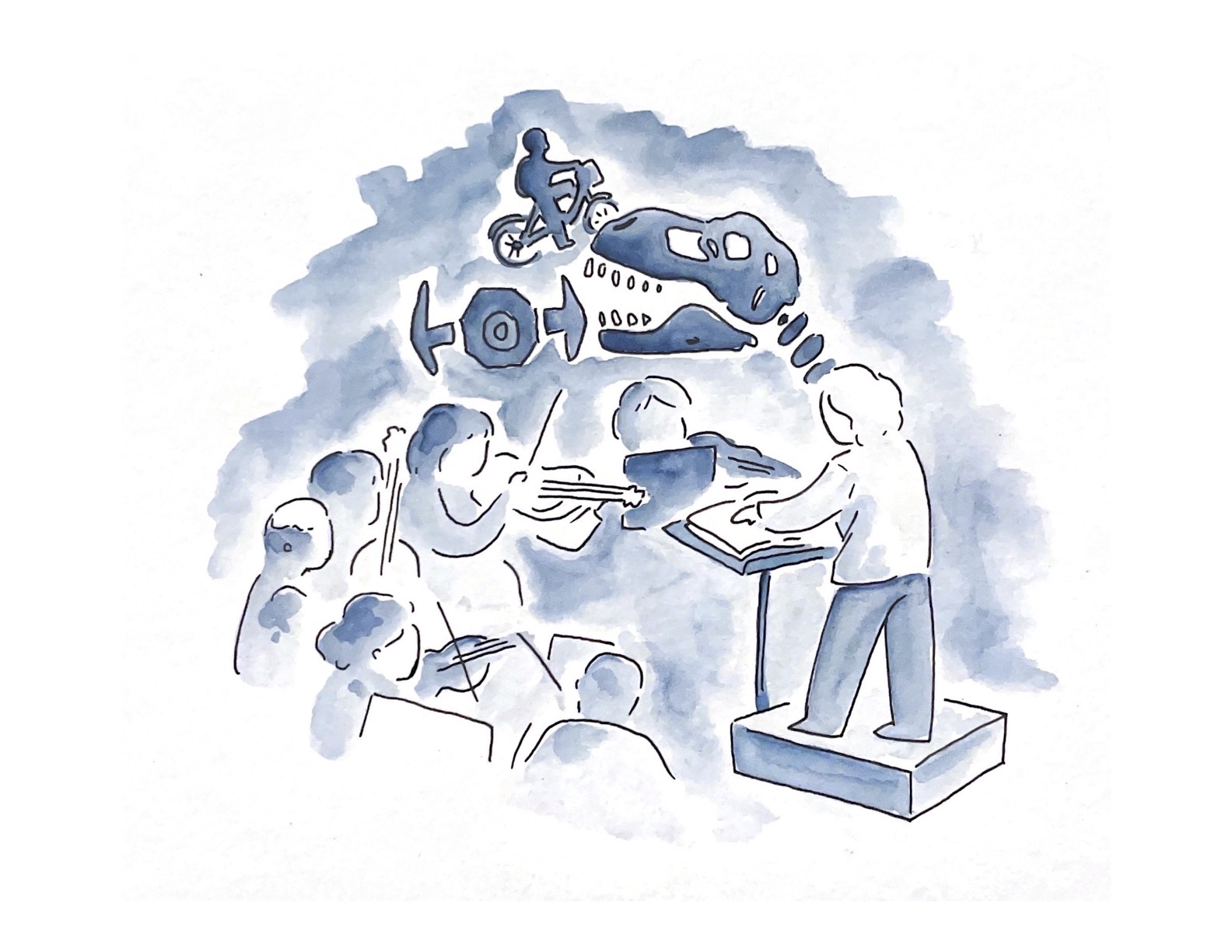
John Williams, one of the greatest composers in history, turned 90 years old in February. On March 19, I was fortunate enough to attend an Oregon Symphony event celebrating his legacy.
For seven decades, Williams has churned out some of the most iconic television and movie scores, three of which are in the American Film Institute’s top 25 film scores in American cinema. Since his first Grammy nomination in 1962, Williams has won 25 Grammys, seven British Academy Film Awards, five Academy Awards, four Golden Globes and three Emmys. He has been nominated for 52 Academy Awards total, making him the second most nominated person behind Walt Disney.
In celebration of Williams’ legacy, conductor Jeff Tyzik and the Oregon Symphony assembled some of his most memorable pieces and performed them at the Arlene Schnitzer Concert Hall. As someone who spends a remarkable amount of time listening to film and television scores, I was elated to attend this magnificent event.
The conductor was animated and personable in his engagement with the audience, the pieces and the musicians. I felt at home sitting among hundreds of people who also reveled in the nostalgia and sheer brilliance of these pieces and the films. Moreover, they played the original sheet music as it was recorded for each film, meaning there were no arrangements, which only amplified the sentimental value of this experience.
Although the program lacked fan favorites like the theme song from “E.T.” and “Hedwig’s Theme,” the carefully-arranged setlist drew from a wide range of his work. The Symphony played highly recognizable pieces like the March from “Raiders of the Lost Ark,” the “Jurassic Park” theme and “Harry’s Wondrous World” from “Harry Potter and the Sorcerer’s Stone.” It was during those pieces that I was especially overcome with nostalgia and homesickness. Hearing a professional orchestra play these soundtracks so closely tied with my childhood brought me pure joy, and I will admit that I cried when they played the “Jurassic Park” theme.
During the “Jaws” theme, the musicians screamed in the midst of the rising tension near the beginning, which had the audience, including myself, cackling. They also played the theme from “Schindler’s List” and “Sayuri’s Theme” from “Memoirs of a Geisha,” which unlocked memories of watching these with my mom when I was probably too young to truly appreciate those films.
For each piece, Tyzik told a story or gave some context to the composition of the music. In introducing “With Malice Toward None” from “Lincoln,” he read aloud the closing lines of Lincoln’s second inaugural address. For the vibrant and rhythmic “Devil’s Dance” from “The Witches of Eastwick,” he asked the audience if anyone had seen this lesser-known movie. Only about 20 people in the whole auditorium raised their hands, but he was thrilled that even some people had seen it, because he was obsessed with this film’s score. He mentioned how he hounded the company to publish the “Devil’s Dance” sheet music, calling the office every month, and after three years, they finally did.
Tyzik took the time to praise Williams for making his sheet music unbelievably cheap and accessible compared to other scores, which tend to cost thousands of dollars.
The orchestra, of course, played several pieces from a certain space franchise whose name Tyzik jokingly refused to say until the very end. They concluded the first half of the performance with “Duel of the Fates” from “The Phantom Menace,” and although they did not have a choir, the musicians did a surprisingly good job singing the opening of the piece. They closed the night on a strong note, playing a suite from “Star Wars,” including the “Main Title,” “Princess Leia’s Theme” and “The Imperial March.”
The conductor recounted the story of Spielberg approaching Williams during the making of “Schindler’s List.” Williams said a better composer was needed to tell this story, to which Spielberg responded, “I know, but they’re all dead.”
Williams has produced a rich breadth of meticulously curated scores that effectively elevate the tone of each film, certainly making him one of the most influential film composers of all time.
Subscribe to the Mossy Log Newsletter
Stay up to date with the goings-on at Lewis & Clark! Get the top stories or your favorite section delivered to your inbox whenever we release a new issue.

Leave a Reply